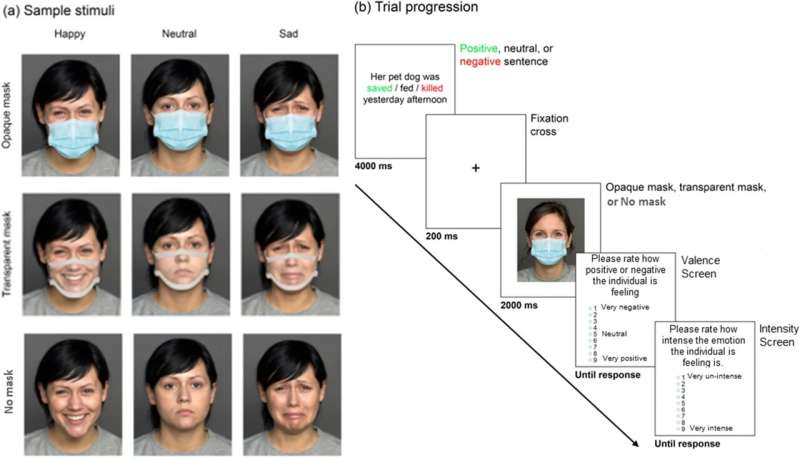
Mask-wearing has become the norm for many since the beginning of the COVID-19 pandemic. Despite their effectiveness in preventing the spread of viruses, opaque masks impair our ability to understand and convey emotions, a group of McGill University researchers has found.
McGill University researchers Jelena Ristic, Full Professor in the Department of Psychology, and Sarah McCrackin, Postdoctoral Fellow in the Department of Psychology, discuss whether transparent masks reduce the negative impacts on social communication.
Here is a Q&A with Ristic and McCrackin:
What did you set out to find?
Because our group previously found that obscuring face parts significantly impairs our ability to perceive emotions, the goal of our latest research was to examine if covering the lower face also impacted our ability to relate to others emotionally. Then, we examined if transparent face masks were effective in restoring socio-communicative abilities, as they allow for visual transmission of facial cues.
What is new or groundbreaking in this paper?
This paper is the first to report that our ability to understand and share emotions with others is impaired when individuals are wearing opaque masks. We are also one of the first to examine whether transparent face masks might reduce negative impacts of obscuring faces on social communication.
We found that while transparent masks restored emotional understanding, they did not restore our ability to empathize with others. This is an important distinction because it suggests that wearing transparent instead of opaque masks may restore some but not all aspects of our social typical communication. This was surprising and suggests that any facial physical barrier presents hurdles in relating to people.
Why is this important?
These data suggest that our abilities to infer and share emotional states with others are impaired when the lower face is covered with a mask, even a transparent one, and thus emotional messages may be lost. This is important for all and especially in medical and educational settings where emotion and empathy are essential cues to our social understanding of others.
Wearing clear masks may provide a partial solution to this communication barrier, reducing some of the negative social impact of opaque masks.
Source: Read Full Article
